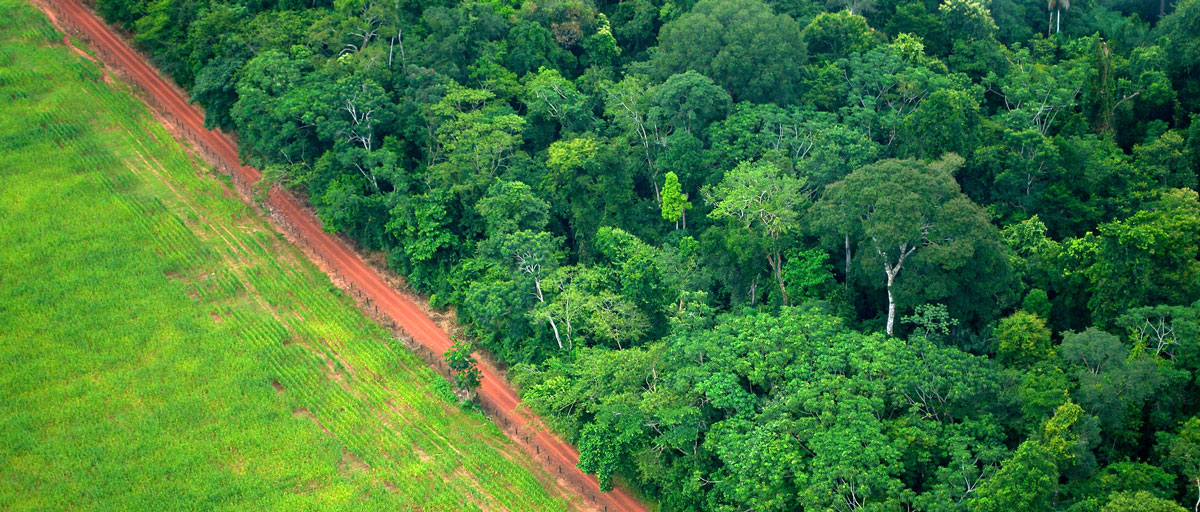Environmental justice
Scientific narratives risk reinforcing colonial structures in tropical forests
.jpg)
Researchers must recognise their role in perpetuating narratives that legitimise large-scale industrial farming in tropical forests. Photo: pmvchamara, Pixabay.
Rural forest communities are made the scapegoat for environmental destruction in tropical forests
- Remote forests are often seen as empty spaces with unlimited potential for resource extraction, conservation and development
- Deforestation is portrayed as a problem caused mainly by smallholder practices, despite evidence of more prominent large-scale drivers
- Researchers must recognise their role in perpetuating narratives that legitimise large-scale industrial farming at the expense of local needs
UP FOR GRABS: Remote forests are often seen as empty spaces, free to use for conservation or resource extraction. In reality, they are not. But the rural communities that inhabit them are often ignored or portrayed as villains that cause environmental degradation and obstruct the pursuit of progress. Meanwhile, the main drivers of deforestation are, ironically, being promoted.
These are the findings of a recent study published in World Development Perspectives, that compiles scientific literature and identifies the dominant narratives that underlie the reinvention of distant forest landscapes into spaces of economic opportunity – so called frontiers.
Narratives of what is an opportunity for whom, who should benefit from these spaces, and what problems need to be solved, have shaped policies and development choices since colonial times.
Grace Wong, first author
The study was led by centre researcher Grace Wong, together with another affiliate of the centre, Minda Holm, and colleagues at Helsinki University as part of the FairFrontiers and Forequal projects.
Harmful narratives
The authors conducted an extensive review of scientific literature that focused on forest frontiers in the Congo Basin and Southeast Asia, and identified three dominant narratives that were largely similar across the two regions.
First, remote forest landscapes are depicted as spaces that are yet to be managed and idle, with unlimited potential for extraction, conservation and development. Second, deforestation is portrayed as a problem caused mainly by smallholder and shifting cultivation practices, despite evidence of more prominent large-scale drivers such as commodity agriculture and global trade networks. Lastly, the third set of narratives highlights market-based initiatives as the main solution to the problems of development and deforestation.
Reinforcing colonial structures
These narratives have far-reaching consequences for local peoples and landscapes. They negatively impact racially and socio-economically discriminated communities, and promote practices that ultimately erode the health of the environment, rather than protect it.
Global institutions, like the Food and Agriculture Organization of the United Nations (FAO), have played a major role in adopting and spreading the image of smallholder practices, such as shifting cultivation, as the main obstacle to agricultural production since the 1950s. This has influenced the ways in which scientists engage with and portray local communities, and effected research funding, financial investments and forest/land policies. Despite the FAO’s more recent attempts to give credit to the importance of shifting cultivation culture and its practitioners, the authors find that the earlier rhetoric still dominates official assessments of deforestation drivers, proposed policy solutions and scientific mindsets.
As researchers, we have to actively recognize our role in perpetuating narratives that legitimize corporate land accumulation and large-scale industrial farming in the name of progress, often at the expense of local needs and livelihoods. It is time to challenge these old mental models and work towards more just alternatives to development.
Grace Wong, first author
Methodology
Literature searches on forest frontiers in the Congo Basin and Southeast Asia form the data corpus that is the basis for this paper. The literature was identified through a set of keywords, and after iterative screenings of the papers’ keywords and abstracts, the final sample was refined to 296 peer-reviewed articles. The chosen articles were coded inductively, using open coding technique. The team conducted a critical analysis to identify different narratives within the literature. Finally, the authors carried out a focused review of grey literature and media to find how the narratives are reflected in contemporary national policies of the case study regions and in the practices and strategies of global development institutions.
Wong, G., Holm, M., Pietarinen, N., Ville, A., Brockhaus, M., 2022. The making of resource frontier spaces in the Congo Basin and Southeast Asia: A critical analysis of narratives, actors and drivers in the scientific literature. World Development Perspectives.









